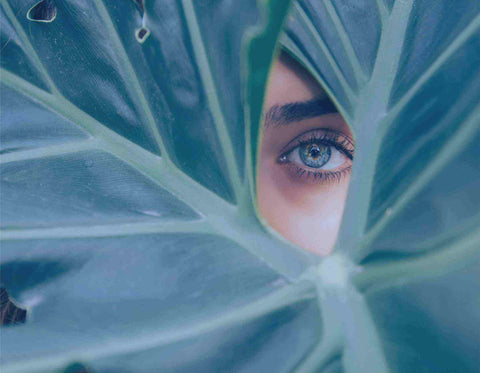Without Blue Light Eye Protection, Millions Could Be at Risk of Eye Damage
We performed a survey to discover how many young British people were at risk of eye damage and insomnia through a lack of blue light eye protection
Optical experts say that we should avoid too much exposure to the blue light in our smartphone, laptop, and tablet screens. The reason for this is that blue light is toxic to the back of the eyes. Overexposure to this light could lead to macular degeneration, the leading cause of blindness.
Not using blue light eye protection can also confuse your body. Blue light tells the body it is daytime even if it’s really the middle of the night. It’s because of this that the NHS recommends that people should avoid screen time in the half hour before they go to bed.
Several studies have backed up these fears by suggesting a link between blue light exposure and issues such as eye damage and insomnia. All of this is why we developed Ocushield’s blue light eye protection, which filters out the harmful blue light from your smartphone, laptop, or tablet screen, while still allowing you to use it.
Are young people using blue light eye protection?
To see if young people were listening to these warnings, we performed a survey. We asked over 1,000 young British people (aged 18-24) whether they used a laptop, tablet, or smartphone screen in the half hour before they went to sleep. These were the results:
Do you look at a smartphone, tablet, or laptop screen in the thirty minutes before you go to sleep?
Yes. And I don’t use a blue light filter — 43.7%
Yes. And I use a blue light filter — 21.4%
No — 35%

How can we explain the results?
There are several factors which might explain why so many young people are looking at screens emitting blue light right before they sleep. Perhaps the biggest reason could be a change in social media behaviour, with young people moving over to Snapchat and Instagram from Facebook.
This mass emigration from a desktop and mobile platform to a mobile-only platform means that social media is closer to a young person’s hand. After all, it’s more likely that a young person would keep their smartphone by their bed than their laptop. So, an increasing use of mobile social media makes checking your social media updates right before sleeping even more tempting.
What do the results tell us about blue light eye protection?
Simply put, the results show millions of young British people are at risk of eye damage and sleep disruption from an overexposure to blue light and — specifically — an overexposure to blue light right before sleeping.
On a more positive note, just over 21% of respondents said that they do use a blue light filter on their smartphone, tablet, or smartphone screens. This goes to show that our message of blue light eye protection has reached just over a fifth of young people. As such, just over a fifth of young people have decided to do something about it.
What’s more, 35% of respondents don’t look at a smartphone, laptop, or tablet screen at all in the half hour before they sleep. So, while it is perhaps worrying that 43% of young people may be at risk of eye damage and insomnia, 57% do not need to worry about these risks.
In an ideal world, these positive figures would be higher, but it’s encouraging to see that the majority of young people are concerned about their health and their exposure to blue light. As such, they are taking steps to deal with it.
How we reviewed this article:
Ocushield has strict sourcing guidelines and relies on peer-reviewed studies, academic research institutions, and medical associations.
Our experts continually monitor the health and wellness space, and we update our articles when new information becomes available.
Current Version
September 30, 2020

Leave a comment